-Dr. Rohini Kitture
The increasing global population accompanied with the increasing demand in energy, food, facilities, made the need for retaining and getting the maximum out of the existing inevitable. The scene of many farmers switching from conventional food farming to solar/energy farming, in the pursuit of higher return on investment, alarmed a bigger food crisis. Thanks to the innovative research groups across the globe, who came up with this idea to lift the solar panels few extra feet off the ground, offering the farmers harvest the crops/food under the solar roofs which are deployed for generating energy. This twofer- called Agrivoltaics, with synergistically increased production of food and energy from the same land, could also control the water evaporation from soil, protecting it from excessive sun-exposure as well.
The right usage of farmland and the available solar energy is being handled well, what about the other resources? For example, water. While using the fertile land for harvesting crops under the solar panel roofs became popular, engineers are also thinking of partially covering the freshwater canals with solar panel canopies, controlling the water evaporation. This ambitious project looks like a costly affair, yet the long-term effects cannot be neglected. With this revolutionary thought in mind, the Turlock Irrigation District (TID) project has come up with this idea of developing solar canopies over canals. If things go as per the plan, the TID should be able to generate 3 gigawatts of energy through solar canopies, covering California’s 4,000 miles of public water infrastructure. Moreover, these canopies will save roughly billion gallons of water being evaporated, which can be used to irrigating farmlands. This brings one project giving three benefits. When most of the land is covered with the elevated solar panel roofs, to produce crop and energy, some more solar canopies over the canals can produce excess energy and save water from evaporation as well, which in turn can be used in farm irrigation.
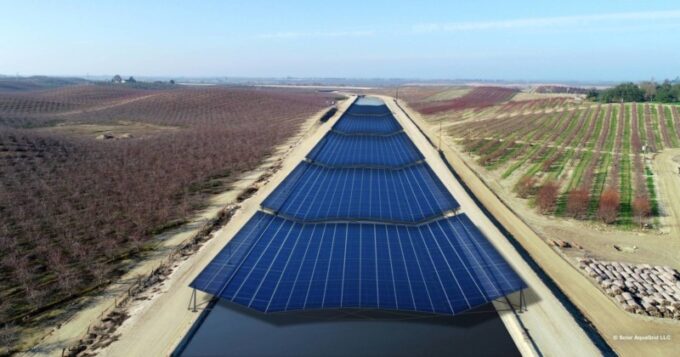
This next level energy and water management aims to look beyond just renewable energy generation and controlling water evaporation. Through this pilot project, the improvement of the water quality in the canal underneath the canopies will be monitored. The team is also optimistic in controlling the vegetative growth as well. Over the period, the picture will be clear with the limitations and the opportunities for the developments.
If this is equipped with the slim, sleek, and super thin solar panels, the floating solar panels over the lakes would be an interesting project to watch and harvest more! Stay tuned for more interesting updates.
Please see the following news Source(s) and original reference(s) therein:

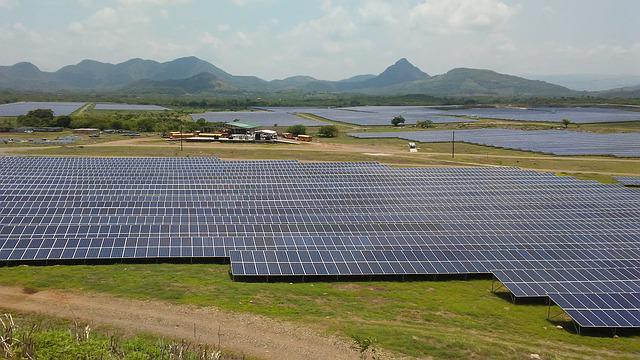

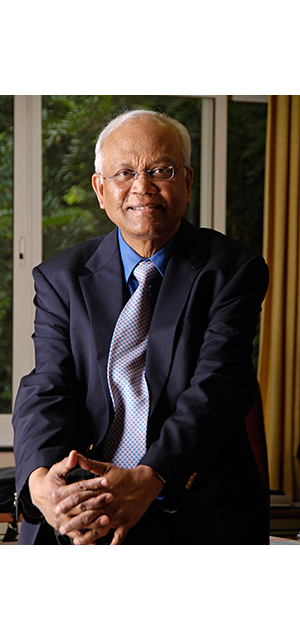
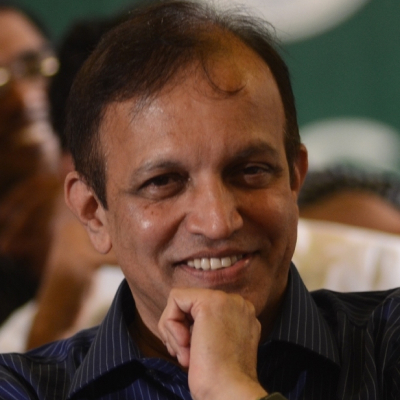
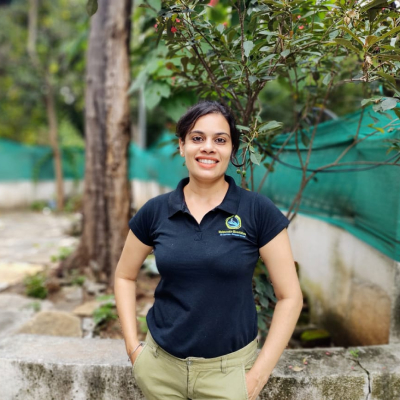
Interesting….Seems optimistic…but a long term goal…
I am just wondering about floating solar panels…..
We just have to think about oxygen exchange between water and air for aquatic flora and fauna.
Thanks for sharing innovative ideas through very lucid language.
Thank you Dr. Pradnya,
Will be shortly writing about floating solar panels.
Stay tuned!
Thanks for sharing innovative ideas in lucid language.
Optimistic but long term goal…
We just have to think on oxygen exchange between water surface and air for aquatic flora and fauna when designing for floating solar cells.
What a novel idea! Renewable energy is the only future for us. Floating solar panels is indeed an interesting project to watch for ,world over.
Being an Indian, I would love the present government to take a keen interest in those projects and try and implement them in India too. So much solar energy is wasted here which put to an optimum use will not only get good returns for the Government but also improve the quality of life for its citizens.
Thank you very much for your comment. India is one of the best recipients of solar energy due to its favorable geographical location. It’s high time to focus on utilizing this energy which is in abundance in India, to deal with the energy crisis.
Thank you for sharing..
Thank you Dr. Prajakta!